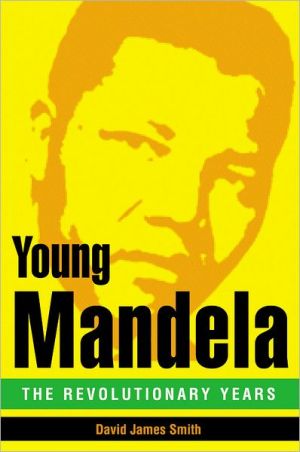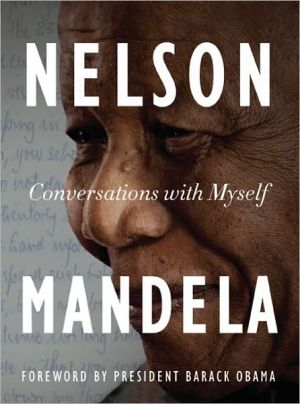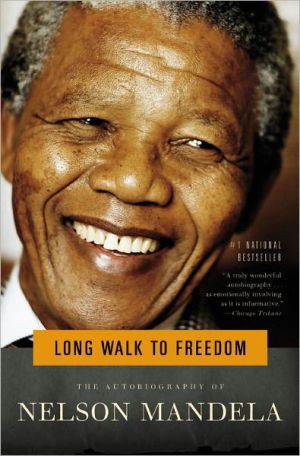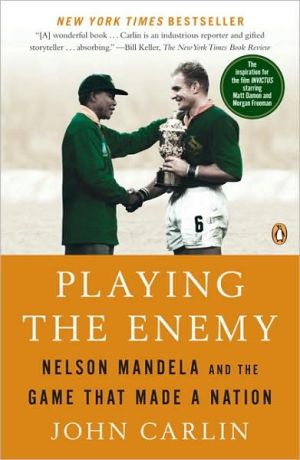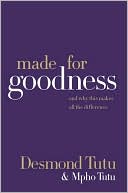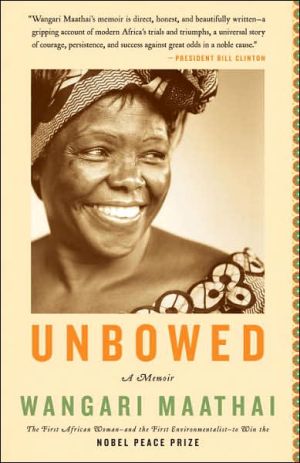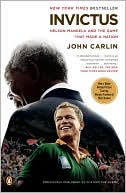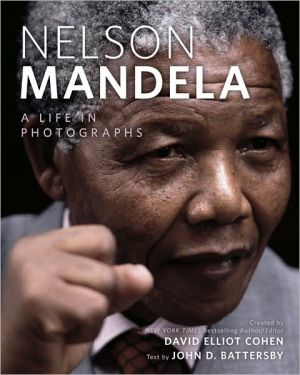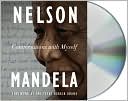Young Mandela: The Revolutionary Years
Nelson Mandela is well-known throughout the world as a heroic leader who symbolizes freedom and moral authority. He is fixed in the public mind as the world's elder statesman—the gray-haired man with a kindly smile who spent 27 years in prison before becoming the first black president in South Africa.\ But Nelson Mandela was not always elderly or benign. And, in YOUNG MANDELA, award-winning journalist and author David James Smith takes us deep into the heart of racist South Africa to paint a...
Search in google:
Nelson Mandela is well-known throughout the world as a heroic leader who symbolizes freedom and moral authority. He is fixed in the public mind as the world's elder statesman—the gray-haired man with a kindly smile who spent 27 years in prison before becoming the first black president in South Africa. But Nelson Mandela was not always elderly or benign. And, in YOUNG MANDELA, award-winning journalist and author David James Smith takes us deep into the heart of racist South Africa to paint a portrait of the Mandela that many have forgotten: the committed revolutionary who left his family behind to live on the run, adopting false names and disguises and organizing the first strikes to overthrow the apartheid state. YOUNG MANDELA lifts the curtain on an icon's first steps to greatness. Publishers Weekly Longtime journalist Smith (One Morning in Sarajevo) digs into newly discovered government documents and firsthand interviews (though none with the supportive but ailing Nelson Mandela himself) in humanizing the iconic leader. Smith ventures deep into the horror of apartheid to trace the burgeoning revolutionary's philosophical trajectories: from the tribal chauvinism and British "gentleman politics" of the African National Congress through the younger, more insistent elements coalescing around mentor Walter Sisulu to Mandela and the ANC's own more militant turn under the influence of South Africa's Indians led by Gandhi, the role of South African Communists, and the pan-Africanism of Marcus Garvey and Kwame Nkrumah. What sets this biography apart is its author's emphasis on Mandela's character and associations in the development of his political career, from boyhood through the Rivonia Trial of 1963–1964; as well as the impact of politics on his personal life, from first wife Evelyn Mase--heretofore neglected in the historical record--to the "woman of his dreams," Winnie Madikizela. No hagiography, Smith's measured study qualifies, lends nuance to, and even contradicts the mythology around Mandela's background and formative influences. Photos. (Dec.)
\ Publishers WeeklyLongtime journalist Smith (One Morning in Sarajevo) digs into newly discovered government documents and firsthand interviews (though none with the supportive but ailing Nelson Mandela himself) in humanizing the iconic leader. Smith ventures deep into the horror of apartheid to trace the burgeoning revolutionary's philosophical trajectories: from the tribal chauvinism and British "gentleman politics" of the African National Congress through the younger, more insistent elements coalescing around mentor Walter Sisulu to Mandela and the ANC's own more militant turn under the influence of South Africa's Indians led by Gandhi, the role of South African Communists, and the pan-Africanism of Marcus Garvey and Kwame Nkrumah. What sets this biography apart is its author's emphasis on Mandela's character and associations in the development of his political career, from boyhood through the Rivonia Trial of 1963–1964; as well as the impact of politics on his personal life, from first wife Evelyn Mase--heretofore neglected in the historical record--to the "woman of his dreams," Winnie Madikizela. No hagiography, Smith's measured study qualifies, lends nuance to, and even contradicts the mythology around Mandela's background and formative influences. Photos. (Dec.)\ \ \ \ \ Library JournalBritish journalist Smith (Sunday Times Magazine; The Sleep of Reason) uses extensive personal interviews with many former African National Congress (ANC) members as well as with Nelson Mandela's family and early colleagues (though not with Mandela himself) to delve into fascinating and extensive detail, both personal and political, about South Africa's elder statesman. Smith's focus is on Mandela's legal training and practice, his relationship with the multiracial ANC, and his early revolutionary years leading up to his arrest, trial, and conviction for sabotage and treason, followed by his sentencing to life in prison on Robben Island in 1964. Smith leaves Mandela there at age 46. More than Mandela's own autobiographical books, e.g., Long Walk to Freedom, this study provides extensive details on Mandela's two failed marriages and his relationships with his children, enabling readers to come to their own conclusions about his flaws as a husband and father.Verdict Not a hagiography but a detailed and multidimensional portrait, this book is best for high school and college students studying South African history. Fans of Mandela should read it as well.—Stephanie Beswick, Ball State Univ., Muncie, IN\ \ \ J.M. LedgardDavid James Smith's Young Mandela takes up the tale of Mandela's rise within the A.N.C.in gripping fashion...and offers a fresh portrait of this modern-day saint...Here, you think, is the man.\ — Young Mandela\ \ \ \ \ Joshua HammerAbsorbing...Smith's account performs the great service of making the hero more fully human.\ — New Republic\ \ \ \ \ Kate TuttleYoung Mandela presents a vivid picture of South Africa under apartheid...Mandela's flaws make him more fascinating, and his movement's ambiguities and conflicts map the crooked, hard-fought road that every freedom struggle must travel.\ — Boston Globe\ \ \ \ \ Peter HowardIlluminating...Mandela is portrayed as a flawed, complex man...but it is this rounded view of the man that gives the book its humanity.\ — Newark Star-Ledger\ \ \ \ \ Library JournalBritish journalist Smith (Sunday Times Magazine; The Sleep of Reason) uses extensive personal interviews with many former African National Congress (ANC) members as well as with Nelson Mandela's family and early colleagues (though not with Mandela himself) to delve into fascinating and extensive detail, both personal and political, about South Africa's elder statesman. Smith's focus is on Mandela's legal training and practice, his relationship with the multiracial ANC, and his early revolutionary years leading up to his arrest, trial, and conviction for sabotage and treason, followed by his sentencing to life in prison on Robben Island in 1964. Smith leaves Mandela there at age 46. More than Mandela's own autobiographical books, e.g., Long Walk to Freedom, this study provides extensive details on Mandela's two failed marriages and his relationships with his children, enabling readers to come to their own conclusions about his flaws as a husband and father.Verdict Not a hagiography but a detailed and multidimensional portrait, this book is best for high school and college students studying South African history. Fans of Mandela should read it as well.—Stephanie Beswick, Ball State Univ., Muncie, IN\ \ \ \ \ Kirkus ReviewsA biography shepherded by the Nelson Mandela Foundation and written by an English journalist attains distance from and clarity on the life of the near-sainted South African leader.\ Sunday Times Magazine contributor Smith (One Morning in Sarajevo: 28 June 1914, 2008, etc.) works back in time from the arrest of Mandela on Aug. 5, 1962, for inciting a strike and leaving the country without a passport. With the busting of the underground headquarters of the armed wing of the African National Congress (ANC) the next year, his papers were discovered, implicating him in revolution and sabotage against the apartheid state, which secured his imprisonment on Robben Island for the next 26 years. In this readable, well-calibrated account of Mandela's early life, Smith attempts to get at the making of the revolutionary and leader, from an impoverished young law student to his rise through the ANC ranks, military training and authoring of"How to Be a Good Communist." The son of a Thembu chief who defied the white magistrate, Mandela was the first of his father's four wives' families to be educated. At Fort Hare University, he met his future law partner and ANC colleague, Oliver Tambo. Mandela was already proving to be a student leader and oppositional figure, and he escaped an arranged tribal marriage and met Walter Sisulu, an ANC leader, helped him find a clerkship while attending law school in Johannesburg. Mentored by Sisulu, Mandela was duly enlightened to the appalling conditions imposed on black Africans by the fiercely racist apartheid structure. Tall and handsome, Mandela was also a ladies' man, marrying Evelyn Mase in 1944 (they had several children), before divorcing her for the much younger social worker Winnie Madikizela, in 1958. Increasing leadership in the ANC involved long absences and strains on the marriage, while Mandela was embroiled in the Treason Trial of the mid-'50s, endured a five-year ban on public speaking and schisms within the ANC and advocated armed struggle by 1961.\ Smith vivifies the personalities and marshals the revolutionary events without overwhelming the reader.\ \ \
